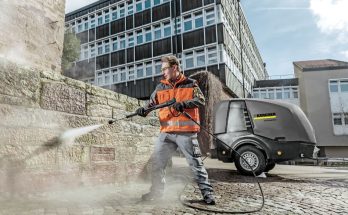Most industries need a variety of equipment for performing various operations. Be it agriculture, material handling, or construction, access to the right equipment and machinery ensure smooth operations and higher productivity. However, these industrial tools and equipment don’t come cheap, and not every business has enough budget to invest in the latest machinery. So, depending on the size and needs, companies choose to rent, buy, or lease equipment. In the construction industry, some major companies maintain large fleets of equipment while many other contractors either rent or lease. All these options- buy, rent or lease have some pros and cons which makes it daunting to take a decision.
Choosing between buying, leasing, or renting construction equipment is a serious decision that has financial repercussions. You need to carefully think about whether you need your own excavator, generators, tampers, and other equipment. It’s important to consider some factors to choose the best course of action, such as budget, operational strategy, cost, storage requirement, and more.
Buy, Rent, or Lease: Analyze Your Construction Equipment Needs
Construction companies typically have 3 three options to acquire construction equipment. Deciding whether they should buy, lease or rent should begin with analyzing their specific needs and financial considerations. It is important to consider the frequency of equipment use and workload. Buying isn’t the best option if you’re going to use the equipment occasionally or seasonally. Other factors such as equipment cost, repair, and maintenance, deprecation, working capital, and resale value should also be considered. Now, let’s find out some details about each available option to help you make a choice.
1. Buying Construction Equipment
Buying means you own the construction equipment and get complete freedom to decide when and how to use the equipment. However, equipment ownership comes with the responsibility for its maintenance and upkeep. You get control over use as you will have the machinery at your disposal whenever you need it. However, you have to pay a high initial upfront cost in the form of a down payment. You can find lower interest rates which mean low monthly payments. But buying could strain your cash flows. Besides the purchasing cost, there are other costs too such as maintenance, repairs, transportation, and more. In addition to this, there will be depreciation that impacts the equipment’s resale value.
2. Renting Construction Equipment
Renting is also a popular option for construction equipment as it provides flexibility. You can find daily, weekly and monthly rates which means you get the needed equipment for as long as you need. You don’t have to worry about maintenance and upkeep. Moreover, the amount paid for renting equipment can be written off as a business expense. However, the rent charges are often higher than a lease or loan payment. You also need to check the equipment availability.
3. Leasing Equipment
Leasing is preferred by many companies as it comes with some of the benefits of both renting and buying. The equipment leasing service can let you lease the needed equipment for a year or more. The cost of leasing is much less than the upfront cost needed as the down payment for buying equipment. You can get access to the latest models without draining your capital or credit lines. There’s no stress related to repair, maintenance, or depreciation.



